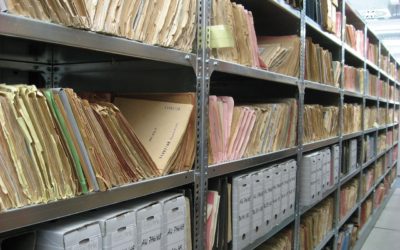BLOG
BLOG
Alternatives for municipal financing for community dams
There are over 3200 dams in North Carolina, and many of these are owned and maintained by smaller entities that may not have the resources to take care of the dams the way they need to be taken care of. And so after time, an inspection may show that the dam needs repair or replacement. Then, if the affected community doesn’t have (and can’t get) the legal structure or financial resources to rebuild, that community may come to the public entity for help.
Municipal Broadband Service
It is a bit late to announce that the age of the internet is here to stay. Even now, new uses and capabilities are constantly developed, and as a result society continually faces developing issues regarding its uses. In just the past few years, radical changes in how society works, plays and simply communicates have been remarkable, and we can expect much more. This series of posts will explore the importance of broadband internet service to the development of North Carolina and the increasingly contentious issue of whether municipalities should provide broadband internet service to its citizens.
Just because it’s a public record, that doesn’t mean it’s not confidential
“I guess I can give you that information — it’s a matter of public record.” Most of us lawyers who work with local governments have heard this – many of us probably have said it. But just because a piece of information is a public record, that doesn’t mean a lawyer doesn’t still have an obligation to keep that information confidential. The concepts of “public record” and “confidential information” arise under separate rules that really don’t have much to do with one another.
The work doesn’t end when the financing is closed
Thank heavens that loan closing is done!!
A loan closing is a cause for celebration. Whether it’s a big bond issue or a small installment financing, it’s natural to see the closing as a bright dividing line in your process – the money is in the bank, and the rest of the work can proceed.
Overcoming the Bike Rack Effect
We’ve all been in meetings like this — I just didn’t know there was an accepted term for the phenomenon –Imagine a city council meeting with three agenda items: a $100 million power plant zoning approval, a request to build a $10,000 bike rack for city sidewalks and a $100 proposal to buy refreshments for the annual picnic. The power plant discussion takes all of 3 minutes to reach approval, as does the refreshment budget. But the $1000 bike rack debate drags on for hours as council members debate the right materials, the best color scheme and the right way to announce the project.
Tips for reviewing official statements
Do you have on your desk an “official statement” that you have to review or help draft? Or do you expect to have one soon? If so, this post will give you some ideas about how to do that effectively. If not – well, we love folks to read all of our posts, but it won’t hurt our feelings if you just bookmark this for when you need it.
Small Changes To These Two Areas Are Easy Ways To Better Engage Your Community
It’s time to change things up when it comes to public meetings if we want them to be effective. Our communities have changed and it’s time the way we hold public meetings changed too. As we discussed in this earlier post, residents aren’t coming to the meetings because they aren’t convenient. Making information more accessible and making meetings better experience for everyone are easy ways to make your community engagement more engaging.
What We Learned From Our Client Feedback Process
We had read many articles touting the benefits of an organized client feedback process, and so we wanted to go through one ourselves. It worked great – we learned a great deal and we’d highly recommend it – and we thought we would share some of what we learned.
Why Your Community Engagement Practices Are Failing to Engage Your Community
Most local government leaders say they want to provide access for all members of the community to voice concerns and opinions about issues affecting the community. Effective community engagement builds on-going, permanent relationships among individuals and interested organizations for the purposes of developing and applying a collective vision for the community’s benefit. Unfortunately, the way many communities actually practice community development works out quite differently. In many communities, community engagement is limited to formal meetings of the governing board and looks something like this, as summarized in a post from the blog Orange Politics:
You Ought to be in Pictures – Getting your community into the movie and TV business
The film industry can boost your local economy in both the short and long term. Throughout North Carolina, localities large and small have reaped the benefits. And the good news is that a small community does not even have to offer direct financial incentives to reap the benefits of promoting itself as “film friendly.” A municipality merely needs to provide a point of contact and provide community access.










